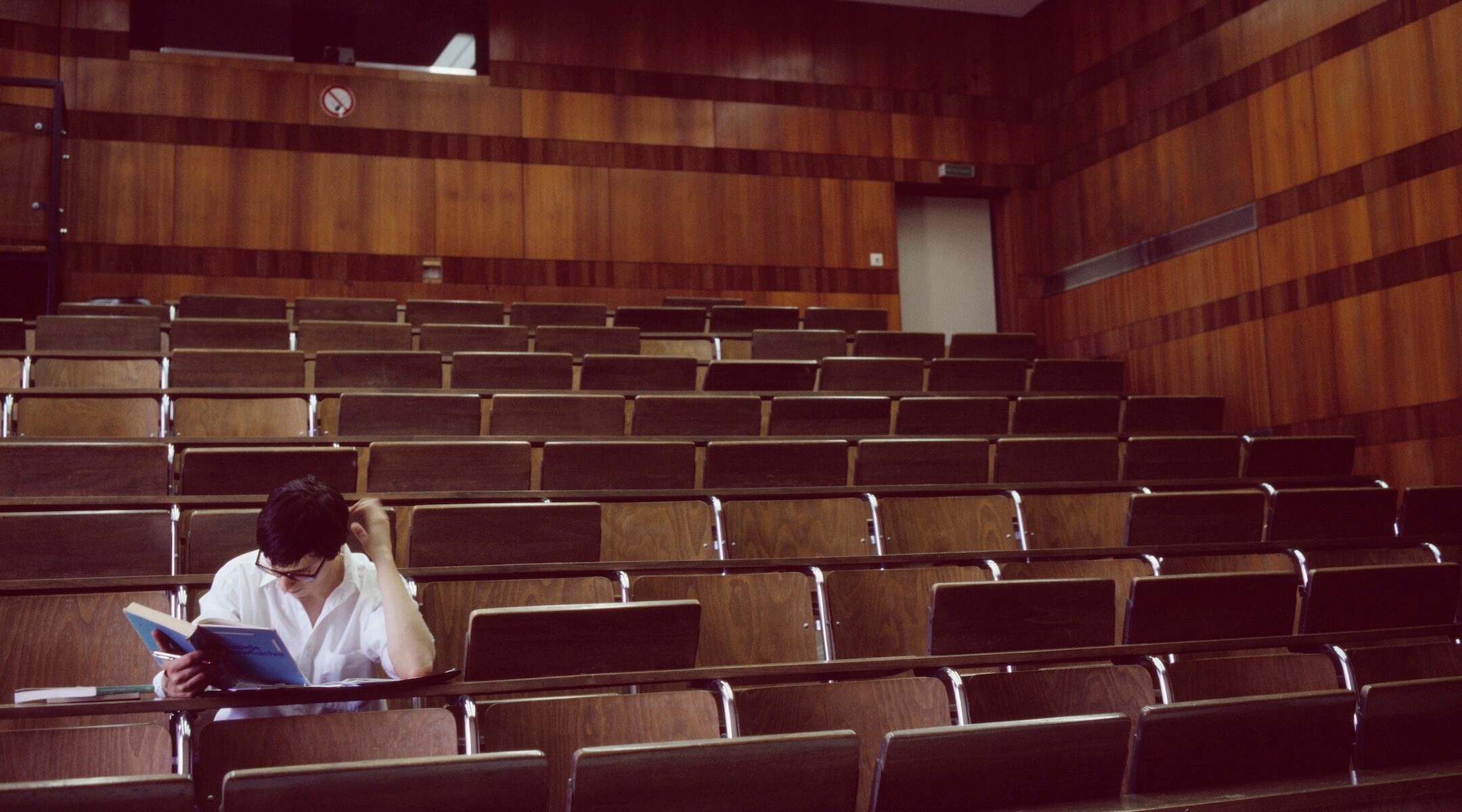(Detroit Jewish News via JTA) — In 1985, I stood in the corner of a crowded meeting room at the Wayne State University Student Center, stone-faced, while people I did not know lined up at a microphone to denounce me before the Student Newspaper Publications Board.
“I don’t think Howard Lovy should be editor of The South End because he is biased toward Israel,” said one, referring to the student newspaper, where I was up for the editor’s position.
The board would decide if I should take the top job. By virtue of my role at the paper, I was in position to assume the top editor slot.
“Howard is a Zionist,” said another critic, “so he should be disqualified from this important job as editor of The South End.”
Some of them said something about the racist rabbi, Rabbi Meir Kahane. Another said something about the massacre of Palestinians in the Sabra and Shatila refugee camps in Lebanon three years previously by an Israel-allied militia group and with the knowledge of the Israeli army. Apparently I was responsible for all these things and people. I should not have been surprised.
A few anti-Zionist students had targeted me months earlier, not only peppering the paper with letters to the editor about me but showing up at The South End office specifically to harass and threaten me.
But at this hearing, there were not dozens but hundreds of people I had never met telling the board about what a lousy journalist I was because I had written pieces on the opinion page in support of Israel. The Student Newspaper Publications Board, wary of controversy because of a previous editor’s anti-military activism, rejected me, and I did not get the job.
I was 19 years old at the time. I’m 55 now and over the shock, but I look back on it as a key event in my development as a Jew and as a journalist. It was an important lesson for me in how isolating antisemitism could be.
It was difficult for me to explain to my friends and colleagues that this even was antisemitism at all. I mean, it seemed perfectly reasonable to many that my “bias” in favor of Israel’s existence compromised my impartiality. But what was the “other side” I was supposed to take equally? Israel’s nonexistence? In 1985, at the age of 19, I lacked the words to explain to anybody that I was being targeted for harassment specifically because I was a Jew.
In this way, I understand what is happening on campus today, with the rise in antisemitism masquerading as anti-Zionism.
The AMCHA Initiative has been tracking antisemitic incidents and activities on U.S. college campuses since 2015. Out of curiosity, I punched Wayne State University into their database and found 16 incidents of “antisemitic expression” and activity in support of the Boycott, Divestment and Sanctions movement targeting Israel from March 2016 to June of this year. (Different groups use different standards to identify antisemitism. Another monitor of antisemitic activity, the Anti-Defamation League, did not record any incidents at Wayne State during that time. The ADL recently announced a partnership with Hillel International to better understand antisemitism on campuses.)
The argument, of course, can be made that all these events are not antisemitic, that they simply express solidarity with Palestinians. And if you’re not a Jew on campus and don’t see and feel for yourself how these things manifest themselves in reality, it is difficult to explain this gray area between pro-Palestinian activism and antisemitic hate speech. You just know it when you feel it.
Ultimately, Jews are gaslighted with the phrase “Criticism of Israel is not antisemitism,” which creates a nonexistent caricature of a Jew who takes offense at every criticism of Israel.
What got me into the whole mess, and sent me down a path I continue to this day, was a story I wrote about a pamphlet. Earlier in ’85, the director of the campus Hillel had approached me at the Wayne State Student Center. He tossed a book near my lunch tray and asked, “Guess what I found the Muslim Students Association selling at Manoogian Hall?”
It was “The Protocols of the Learned Elders of Zion,” the infamous czarist-era Russian forgery that sets out the Jewish plan for world domination. The Hillel director knew I wrote about Jewish issues, so he challenged me to write a story about this.
“It doesn’t matter if the ‘Protocols’ are fiction. Maybe they are, maybe they aren’t,” the head of the Muslim Student Association told me in an interview at the time. “But you cannot deny that many of the prophecies in this book have come true. Jews run the financial systems.”
This student became my nemesis. Every time I’d write anything in The South End, there he was to refute it. Not only that, but it became a campaign. The Muslim Student Association began tracking everything I wrote. Once I ran into one of its members while shopping at Detroit’s Eastern Market. I heard him say “Zionist” as I walked by.
OK. Yes. That was, and is, true. I am a Zionist. So how do you describe to non-Jews that for anti-Zionists, “Zionist” is the equivalent of saying “dirty Jew”? How do you tell people that this was not “just criticizing Israel” when it’s part of a coordinated campaign to attack everything a Jew writes and, ultimately, prevent him from attaining the editor’s position?
I was alone in 1985, but today, Jewish students can find solace in online communities. Julia Jassey, a University of Chicago student who runs a group called Jewish on Campus, is emerging as a leader among young people on campus fighting back against antisemitism that masquerades as anti-Zionism.
Of course, none of those things were available to me in 1985, so I did the next best thing: I interned for the Detroit Jewish News, which also ran a version of my story about the “Protocols.” This unexpectedly led to my career as a “Jewish journalist” and, years later, as managing editor at the Jewish Telegraphic Agency.
Today my college experience is wrapped into a lifetime of experiences in recognizing the various shades of antisemitism. It is difficult, I know, for college students. But I am also optimistic that even though it may look worse than it was “in my day,” young Jews are working together to help define and fight the problem of campus antisemitism.
This article first appeared in the Detroit Jewish News.
JTA has documented Jewish history in real-time for over a century. Keep our journalism strong by joining us in supporting independent, award-winning reporting.







